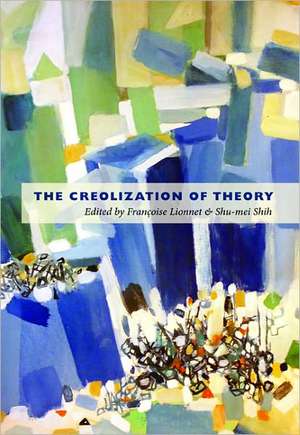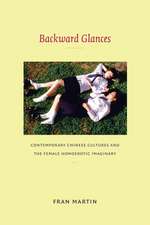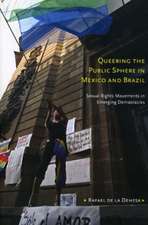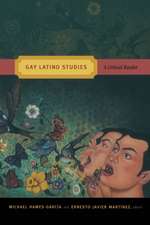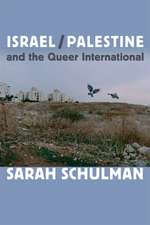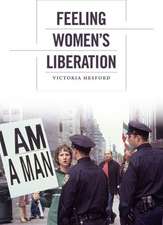The Creolization of Theory
Autor Françoise Lionnet, Shu–mei Shihen Limba Engleză Paperback – 18 mai 2011
Preț: 264.26 lei
Nou
Puncte Express: 396
Preț estimativ în valută:
50.58€ • 54.96$ • 42.52£
50.58€ • 54.96$ • 42.52£
Carte tipărită la comandă
Livrare economică 22 aprilie-06 mai
Preluare comenzi: 021 569.72.76
Specificații
ISBN-13: 9780822348467
ISBN-10: 0822348462
Pagini: 320
Ilustrații: 4 photographs
Dimensiuni: 179 x 227 x 18 mm
Greutate: 0.45 kg
Editura: MD – Duke University Press
ISBN-10: 0822348462
Pagini: 320
Ilustrații: 4 photographs
Dimensiuni: 179 x 227 x 18 mm
Greutate: 0.45 kg
Editura: MD – Duke University Press
Cuprins
Contents; Illustrations; AcknowledgmentsIntroduction: The Creolization of Theory - Shu-mei Shih and Françoise LionnetI. Creolizing Methodologies1. Symptomatically Black: A Creolization of the Political - Barnor Hesse; 2. Post-Slavery and Postcolonial Representations: Comparative Approaches - Anne Donadey; 3. The Crisis of Money - Pheng Cheah; 4. Material Histories of Transcolonial Loss: Creolizing Psychoanalytic Theories? - Liz Constable; 5. From the Multicutlural to Creole Subjects: David Henry Hwangs Collaborative Works with Philip Glass - Ping-hui LiaoII. Epistemological Locations6. I Am Where I Think: Remapping the Order of Knowing - Walter Mignolo; 7. Taiwan in Modernity/Coloniality: Orphan of Asia and the Colonial Difference - Leo Ching; 8. Toward a Diasporic Citizen? From Internationalism to Cosmopolitics - Etienne Balibar; 9. The Forces of Creolization: Colorblindness and Visible Minorities in the New Europe - Fatima El-TayebIII. AppendixA. Europe and the Antilles: An Interview with Edouard Glissant - Andrea Schwieger Hiepko; Translated by Julin Everett; B. Creolization: Definition and Critique - Dominique Chancé, Translated by Julin EverettBibliography; Contributors
Recenzii
The Creolization of Theory is a highly significant, originally and thoughtfully conceived volume. It advances contemporary debates about the place of theory in cultural criticism in the aftermath of postmodernism, decolonization, and globalization. One of its greatest contributions is to critically decentre European theory in order to highlight the plurality of theories that emerges out of the material processes of decolonization. Lisa Lowe, University of California, San DiegoShowcasing considerable critical vision and rigorous inquiry, The Creolization of Theory is an ambitious collective endeavour to rethink the notion of theory, which has been instrumental in reshaping humanistic studies in North America in the past few decades. The contributors help to develop an understanding of theory as an evolving, rather than completed, phenomenon, one that must continue to be subject to new historical and cross-cultural challenges. Rey Chow, author of The Age of the World Target: Self-Referentiality in War, Theory, and Comparative Work
Notă biografică
Descriere
A bold intervention in debates about the role of theory in the humanities
